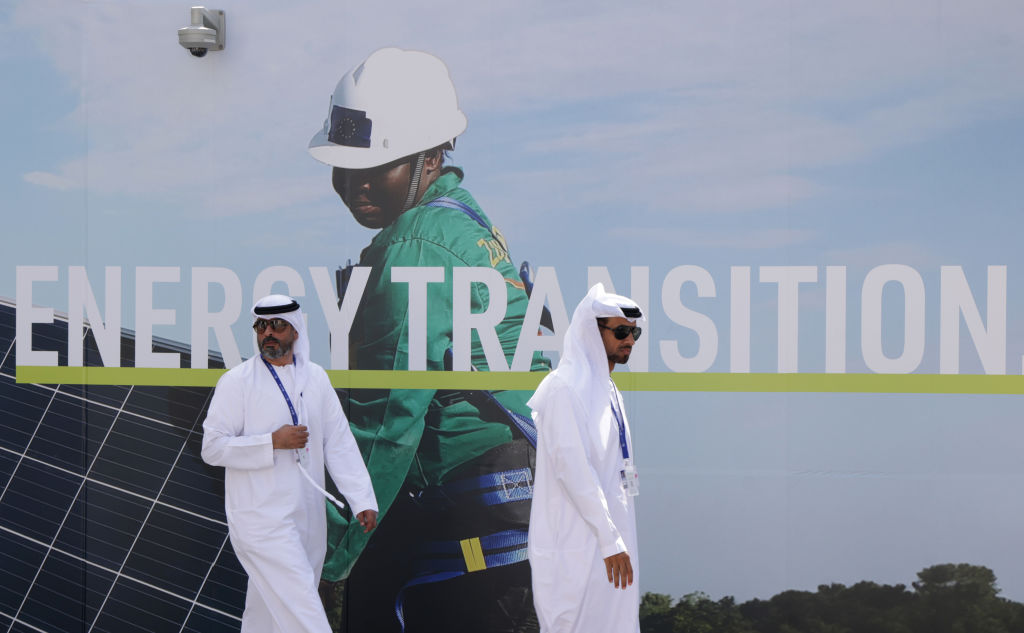
(To get this story in your inbox, subscribe to the TIME CO2 Leadership Report newsletter here.)
Just as COP28 began two weeks ago, I wrote that one reason U.N. climate conferences matter is because of the signal they send to the private sector. In eight years, “Paris aligned” has become the shorthand for businesses that say they’re decarbonizing in accordance with the Paris Agreement.
Now that COP28 has wrapped, it’s useful to ask: what is the market signal that emerged in Dubai?
The text of the COP28 deal—known as the U.A.E. Consensus—calls on countries to transition from fossil fuels and to scale up renewable energy rapidly. A debate has already emerged on how much that deal matters. Sultan Al Jaber, this year’s COP president, delivered a triumphant address proclaiming that the talks had “set the world in the right direction.” Meanwhile, many civil society groups and vulnerable countries have decried it as toothless. “A litany of loopholes,” Anne Rasmussen, Samoa’s top negotiator, declared on behalf of small island states minutes after it was gavelled in.
It is true that the voluntary deal doesn’t commit countries to much of anything. Oil and gas companies surely won’t suddenly see the light and pull back on drilling in response to it. And financial institutions won’t reduce interest rates out of nowhere for solar projects in emerging economies.
And yet the fact that negotiators reached a deal at all offers an important, positive market signal. COP28 occurred amid significant headwinds. Two major wars are raging, dividing the countries represented in Dubai. The political case for climate policy has grown more complicated in developed economies, where inflationary pressures have made citizens skeptical of anything that might raise costs. And many low- and middle-income countries face extreme economic turmoil, which could be aided with a lift from rich countries that have thus far been reluctant.
With all these headwinds, there was no guarantee that negotiators could reach an agreement at all, and yet they did. It’s an indicator that climate change remains a priority, to the officials who gathered in Dubai and the constituencies watching back at home. And it’s a signal that countries will continue to collaborate on climate change amid other challenges. For those worried that the energy transition has stalled, the deal offers a powerful rejoinder that at the very least political forces remain supportive. Indeed, a Dec. 13 research note from investment bank UBS suggested that the deal would drive “recovery in investor confidence around many climate- and emissions-related investment themes.”
But the final deal is not the only way to assess the conference. Throughout the course of the summit, executives from across sectors roamed the gargantuan conference center and met across hotel ballrooms and side events in Dubai. As I’ve previously written, these private sector officials traveled to Dubai for a variety of reasons, but one thing their presence underscored to me is that companies and financiers have woken up to the enormous economic opportunity presented by efforts to tackle climate change. In the background, companies did deals and announced new programs with significant capital at play.
To paraphrase what one executive told me at a reception: business came to COP28 because that’s where the action is. Businesses that ignore the opportunities in the energy transition risk missing out.
More Must-Reads From TIME
- The 100 Most Influential People of 2024
- Coco Gauff Is Playing for Herself Now
- Scenes From Pro-Palestinian Encampments Across U.S. Universities
- 6 Compliments That Land Every Time
- If You're Dating Right Now , You're Brave: Column
- The AI That Could Heal a Divided Internet
- Fallout Is a Brilliant Model for the Future of Video Game Adaptations
- Want Weekly Recs on What to Watch, Read, and More? Sign Up for Worth Your Time
Write to Justin Worland / Dubai at justin.worland@time.com